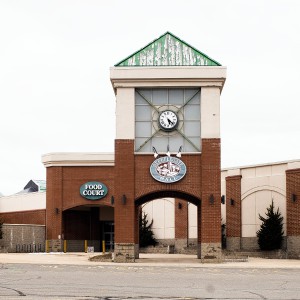Waste, rescue services weigh on Allenstown budget

The outside of the Old Allenstown Meeting House is seen on Tuesday, July 14, 2015. Monitor file
|
Published: 01-31-2024 5:02 PM
Modified: 02-01-2024 3:48 PM |
The costs of two vital programs in Allenstown – solid waste disposal and recycling, and fire and ambulance services – are contributing to a proposed 17% budget increase that will be discussed at the town’s deliberative session on Saturday.
Town Administrator Derik Goodine said in an email that the increases were “abundantly important in order to deliver the services that the residents expect.”
The 10-year recycling and solid waste contract is set to expire and costs are going up.
“Our research of current market trends, other new contracts from other towns in New Hampshire, and recent negotiations have shown us that our costs are going to more than double when it is all said and done,” the town’s budget summary explains.
Allenstown’s contract with Municipal Solid Waste expires at the end of August, Goodine said.
“The thought floating around is that some money will be cut from the solid waste lines at the deliberative session to eliminate curbside recycling,” Goodine said. “Eventually eliminating curbside recycling could save us as much as $120,000 per year or more on the new contract, and then we would only have only have drop-off recycling at the transfer station.”
Another budget driver was a $169,910 increase to the fire department budget due to the hiring of new personnel to expand emergency coverage once the town stops using Tri-Town EMS.
The change will give the town 24/7 fire and EMS services rather than just 8 a.m. to 5 p.m. during the week. Allenstown has to pay for a half year of the Tri-Town service as the town transitions to begin its own service on July 1. However, future revenue from the service should lower costs.
Article continues after...
Yesterday's Most Read Articles
 Neighboring landowner objection stalls Steeplegate redevelopment approval
Neighboring landowner objection stalls Steeplegate redevelopment approval
 As N.H. coal-fired plants shift to solar, offshore wind beckons
As N.H. coal-fired plants shift to solar, offshore wind beckons
 Body of long-missing hiker found, pinned by boulder in Dry River
Body of long-missing hiker found, pinned by boulder in Dry River
 Baseball: Undermanned, Belmont battles against one of the state’s top pitchers
Baseball: Undermanned, Belmont battles against one of the state’s top pitchers
 UNH seeks vandal who accused university of genocide in spray-painted message
UNH seeks vandal who accused university of genocide in spray-painted message
 UNH Faculty Senate calls on university to investigate police response to protest
UNH Faculty Senate calls on university to investigate police response to protest
“The town has grown a lot in the past year with two new buildings that have brought the population up by more than 9%,” Goodine said. “The new assisted living facility along with the new mill apartment building will increase the volume of service needs and provide more revenues with billing income and tax revenue.”
Other increases include a 6% raise for employees to cover cost-of-living increases and also to keep wages competitive with surrounding communities.
The town’s proposed $5.5 million operating budget was recommended by the select board and budget committee. The default budget is $4,819,200, or the same as last year.
If the budget fails to pass, it could lead to reduced services.
“The increase in the operating budget is to transition to a fire-based service to build on a better response and care level,” Goodine said in an email. “Passing the budget ensures that services in town remain where they are or get better!”
At SB2 meetings, residents discuss and amend warrant articles at their deliberative session. Their final vote on the warrant articles at the polls on March 12.







 Adam Montgomery sentenced to minimum 56 years on murder charges in young daughter’s death
Adam Montgomery sentenced to minimum 56 years on murder charges in young daughter’s death Following budget cut, Pembroke revisits future of elementary school re-build
Following budget cut, Pembroke revisits future of elementary school re-build Granite Geek: Free government software for taxes – what could go wrong? (Not much, as it turns out)
Granite Geek: Free government software for taxes – what could go wrong? (Not much, as it turns out)
